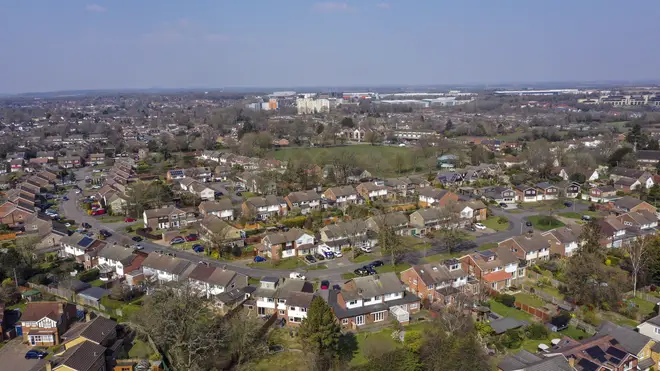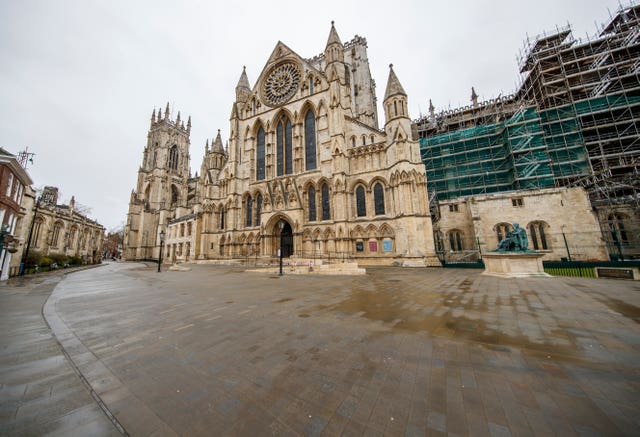
Clive Bull 1am - 4am
21 September 2020, 00:04

Three and four bedroom homes favoured by buyers taking their second step on the property ladder have reached a record average asking price high.
The average price tag on larger homes with three or four bedrooms hit a record high in September as buyers look to trade up in the search for more space.
Across Britain, typical “second stepper” homes reached a record average asking price of £291,618, Rightmove said.
These types of properties, which could be houses or flats, are sought after by buyers moving out of their first home and taking their second step on the property ladder. Four bedroom detached houses are excluded.
Rightmove said the price record has been fuelled by buyers needing extra space for their families or room to work from home.
It said that across all property types, prices have remained steady since hitting a record high in July.
The average asking price for a property in September was £319,996 – just £269 below the record set in July.
Average asking prices generally are up by 0.2% month-on-month and up by 5% annually – the highest annual growth rate since September 2016.
Regions outside the South of England have seen the strongest price jumps, Rightmove said.
Tim Bannister, Rightmove’s director of property data, said: “Increased competition for second stepper homes has pushed prices to a record this month for those looking to take the next step up the ladder.
“Needing more space has always been the most popular reason for moving house, but now there’s a new urgency for extra space to be able to work from home, which means that there are different sets of buyers competing for the same type of property.
“At the start of the year a fourth bedroom was very much a luxury for buyers trading up, but it’s now emerging as a must-have for those who are able to take that step.
“With overall asking prices just a few hundred pounds shy of July’s record, and buyer demand at an all-time high, those currently looking for their next home are likely to find that only offers close to the asking price will be considered, especially for larger homes.”

Rightmove said that nationally, sales agreed for the whole year to date are down by 5% on the same period last year.
Two regions – the East of England (up by 4%) and the South East (up 1%) – have already overtaken the number of sales agreed for the same period last year, helped by higher average prices causing the current stamp duty holiday to have more of an impact for buyers and sellers, Rightmove said.
Scotland and Wales are in double digit house sales declines as they are still playing catch up from reopening their housing markets later than England, and are now down by 21% and 16% respectively, according to the website.
In London, sales agreed for the year to date are down by 3% compared with the same period a year ago.
Rightmove said there is strong sales activity in outer London, while areas such as Zone 1 are finding it more challenging, where sales are down by 14% for the year to date compared to the same period in 2019.
Mr Bannister continued: “If the market continues at its current pace then we could see all areas of England break even over the next month or so.
“We know that some people are now choosing to move out of London altogether, but these latest figures show that there’s still plenty of activity in the outer areas of the capital.”
Rightmove also quoted the views of estate agents.

Ben Hudson, managing director of Hudson Moody in York, said: “A number of our buyers are coming from London, as it’s comparatively cheap here compared to the capital.
“They’re selling up their homes in Wandsworth and Clapham and buying a four-bed detached house in York, because they’ll only be commuting from here once or twice a week, something they would never have been able to consider doing before.
“We’re very much having to make our buyers and sellers aware that the conveyancing process is taking longer at the minute; there’s a mixture of fewer council staff working so searches are taking longer, mortgages taking longer to go through, and solicitors being inundated with work. We’re having to call everyone involved in the sale constantly to make sure things keep moving.”
Nick Leeming, chairman of Jackson-Stops, said: “For those looking to sell their home now, there are ways in which you can help prevent a sale from taking longer than expected to reach the completion stage.
“A key way of doing this is to be prepared, get all of your documents, searches, pre-contract inquiries and contracts agreed in advance, so that as soon as you have agreed terms with a buyer everything you need is ready.
“It is also worth investigating the delivery time scales of your solicitor – do your research, read reviews from other sellers.”
Here is how the average sales agreed year-to-date in 2020 compares with 2019, according to Rightmove:
– East of England, 4% increase
– South East, 1% increase
– South West, 1% decrease
– London, 3% decrease
– North East, 4% decrease
– North West, 5% decrease
– Yorkshire and The Humber, 6% decrease
– East Midlands, 6% decrease
– West Midlands, 7% decrease
– Wales, 16% decrease
– Scotland, 21% decrease